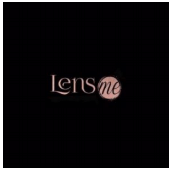
A clear view on “LENS ME” for contact lenses: Modest prior online sales sufficient to establish goodwill and passing-off
It is well-established that the trade mark regime in Singapore operates on a first-to-file basis. However, in Florian Mack v Golden Cala Trading EST [2020] SGIPOS 5, the Intellectual Property Office of Singapore (IPOS) held that a foreign brand owner with no earlier trade mark applications or registrations in Singapore was able to successfully oppose another trader’s highly similar application on the basis of passing off, by relying on modest prior online sales to establish goodwill within Singapore.
Background
This dispute concerned two traders in the contact lens industry based primarily in the Gulf or “Middle East” region of the world. The Applicant sought to register the following “LENS ME” mark in Class 9 for “contact lenses”:

(the “Application Mark”)
The Opponent, Mr. Mack, is a German businessman and proprietor of the following trade mark, which he had commercially exploited and licensed for the business of distributing and selling contact lenses to customers worldwide through an online store at www.lens.me:

(the “Opponent’s Mark”)
The Opponent had never filed for registration of his trade mark in Singapore, and therefore relied on the opposition grounds of passing off and bad faith.
Decision
Passing Off
To succeed under this ground of opposition, the Opponent needed to establish: (1) goodwill, (2) misrepresentation and (3) damage. Neither misrepresentation nor damage was a difficult hurdle to cross in this case. Given that both marks were highly similar visually, aurally and conceptually, with both containing a visually impactful circle around the word “ME”, the Registrar concluded that the average consumer would be confused into thinking that contact lenses supplied under the Application Mark originated from or were otherwise commercially linked to the Opponent. This diversion of custom would result in damage. The main issue was whether goodwill existed in the Opponent’s business within Singapore.
Based on the evidence, the Opponent showed that it had used and advertised its mark in connection with its www.lens.me business conducted over the internet, and that it had approximately 74 actual customers in Singapore prior to the relevant date. Could such a modest business be sufficient to establish goodwill? Case authorities did not lay down rigid rules as to where the boundaries lie, because each case necessarily turns on its own facts.
In this case, the Registrar held that this modest evidence was sufficient to establish goodwill. Unlike a case where a mark was simply placed on the internet or used in online advertising generally without further active steps within the jurisdiction, the Opponent in this case took active steps in connection with its mark in Singapore, which generated not just awareness but also actual sales. Furthermore, of the 74 customers, the Opponent was able to show that some of its customers made repeat purchases. This was evidence of “an attractive force that brought in custom“, i.e. goodwill.
Accordingly, the Opponent succeeded in establishing the opposition ground under the tort of passing off, and the opposed mark was refused registration.
Bad faith
Based on well-established legal principles in Singapore, an allegation of bad faith is a serious claim to make and must be sufficiently supported by evidence. Bad faith embraces not only actual dishonesty but also dealings which would be considered as commercially unacceptable by a reasonable and experienced person in the trade.
In this case, it was not clear from the evidence that the Applicant had intentionally usurped or copied the Opponent’s business. It was also not clear who really started using “LENS ME” first. In any event, the Registrar noted that many traders, at some or other point in time, eventually consider the possibility of expanding their business abroad, and that there was nothing to suggest in the present case that it was commercially unacceptable for the Applicant to apply to register the Application Mark in Singapore. The ground of opposition under bad faith was therefore not made out.
Comment
This case shows that passing-off is a separate and distinct ground for opposing registrations, and a potentially powerful ground for brand owners to rely on even without a trade mark registration. This case also illustrates that even modest online sales may be sufficient for brand owners to establish the requisite goodwill in Singapore, although this is ultimately a fact-specific inquiry.
Some may criticize the decision as contrary to the principle of a first-to-file trade mark system. Through this lens, some may also argue that since there was no prior trade mark application or registration for the Opponent’s Mark, the Applicant was simply exercising its first mover advantage by applying to file in this jurisdiction. However, the Registrar considered this, and stated as follows:
“The Opponent has amply proved that it enjoyed goodwill in Singapore at the Relevant Date whereas the Applicant furnished no documentary proof that goods bearing the Application Mark have ever been sold here. In other words, the Opponent had prior rights in this country… And lest it be forgotten, the TMA expressly preserves the law relating to passing off: see s 4(2) TMA (the relevant part of which states: “nothing in this Act shall affect the law relating to passing off”)… My refusal to allow the Application Mark to be registered on the passing off ground does not in any way undermine the trade marks regime. The system is working just as Parliament intended.”








